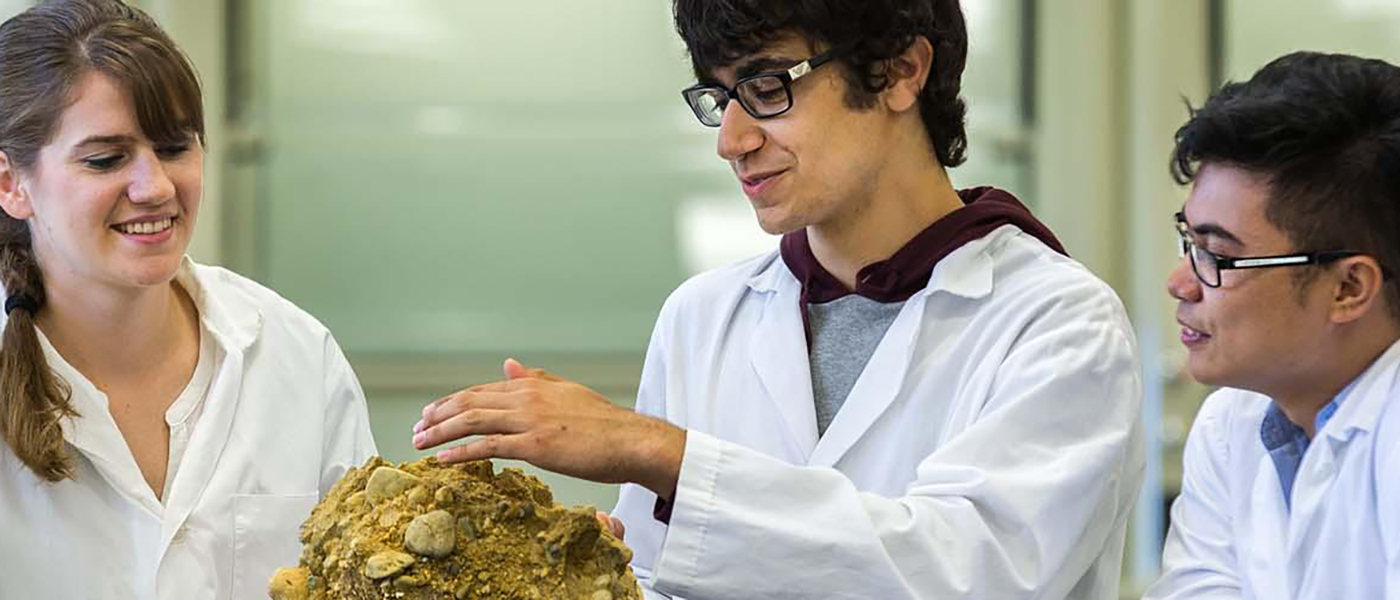Tackling the global challenges of climate, pandemics and energy requires research from multiple fields of science, modern scientists need to have an interdisciplinary foundation. They must ask critical and creative questions, and communicate their work to wide range of audiences across a multiple platforms. Honours Integrated Science (iSci) is a unique four-year undergraduate program that explores all areas of science via research. Students learn not only cutting-edge science, but also how science works in and for society. Small class sizes, wide breadth of subjects and innovative teaching characterize this award-winning program. We provide students with these essential skills and experiences. The best way to know if iSci is the program for you is to visit! Registration for Winter starting in January 2025 Take advantage of our 'iSci for a Day' program! .Check out the iSci Instagram page here!
What Is iSci?
- A 4-year, research-based Honours degree program
- An interdisciplinary program with its own learning and administrative space
- A student-centered program, enrolling a maximum of 60 students per year
- An innovative program, emphasizing collaborative and experiential learning opportunities
Program Delivery
- Integrates scientific concepts with lab, field and mathematical approaches
- Varied instructional methods with co-teaching, multi- and interdisciplinary perspectives
- Assessments strategically aligned with content and skills
- Delivers core learning through lectures as well as group and individual research projects
- Embeds science literacy skills in all years
- Prepares students to transfer into self-directed, independent research
iSci Courses
Students are taught by interdisciplinary team of faculty in an innovative 24-unit course. The course fully integrates content from all science disciplines, with a particularly strong foundation in Mathematics, Physics, Chemistry, Biology, Earth Science and Science Literacy. Level I students in iSci learn in a variety of environments, including formal lectures, tutorials, laboratories, field settings and informal working groups. Integration of discipline content will occur partly through ‘thematic modules’ (such as ‘Planetary Exploration’ or ‘Cancer: A Modern Plague’) that emphasize the linkages between discipline areas and their relevance to modern societal issues. This Level I course allows the development of exciting new models for the teaching, learning and evaluation of scientific knowledge and skills in an undergraduate program.
*Please note: this outline is subject to change from year to year
Students take a single 18-unit iSci course and select 12 units of electives. Students may focus electives in a discipline area in which they would like to specialize (e.g., Physics, Biology, Earth Science, Mathematics, Chemistry, Computer Science, Biochemistry or Psychology).
*Please note: this outline is subject to change from year to year
Students take a single 12-unit iSci course and select 18 units of electives. In addition, Level III students will begin an individual interdisciplinary research project and develop scientific literacy skills, including data analysis, inquiry/scientific communication and leadership.
*Please note: this outline is subject to change from year to year
Students take a single 12-unit iSci course and select 18 units of electives while completing a thesis/interdisciplinary team research project.
*Please note: this outline is subject to change from year to year

